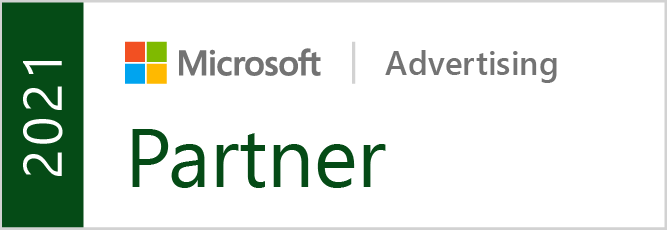The synergy between search engine optimization (SEO) and pay-per-click (PPC) advertising is a significant strategy for driving business growth. Both SEO and PPC serve unique roles in a comprehensive marketing plan, with SEO focusing on optimizing a website to rank organically in search engine results and PPC providing businesses the ability to pay for direct advertising placements. Together, these methods offer a balanced approach to increasing online visibility, attracting targeted traffic, and converting visitors into customers. A deeper understanding of how PPC and SEO work together to amplify online marketing efforts is crucial for businesses aiming to leverage the full spectrum of digital marketing.
The Roles of SEO and PPC in Business Growth
Understanding how SEO and PPC drive business growth is crucial. While SEO works to increase organic traffic through search engine rankings, PPC drives targeted exposure with paid ads. Together, they form a dual strategy in internet marketing that can sharply increase a brand’s online presence.
SEO is the marathon in digital marketing, providing long-term results through consistent content creation, keyword strategy, and adherence to search engine algorithms. On the other hand, PPC is the sprint, delivering immediate results by placing your brand at the forefront of relevant search results through paid campaigns.
When SEO and PPC are combined, businesses can achieve comprehensive market dominance. This synergy ensures that even while building organic search credibility with SEO, companies can also gain immediate visibility and traffic through targeted PPC ads.
SEO: The Driver of Organic Website Traffic
SEO influences the visibility of a website in the unpaid section of search engine results, known as organic listings. By optimizing website content for search engines, businesses can significantly improve their site’s visibility. This involves strategic keyword research, high-quality content creation, and ensuring the site is easy for search engines to read and categorize.
The better a site’s SEO, the higher it ranks in search engine results for relevant keywords. This is critical since most users rarely go past the first page of search results. Thus, effective SEO directly correlates with increased organic traffic, enhanced brand presence, and greater trust and credibility among potential customers.
Are you looking to drive local traffic to your website? Check out our local SEO services in cities like Kansas City and Omaha.
PPC: The Direct and Targeted Approach to Marketing
PPC campaigns allow businesses to place ads in search engine results and other strategic locations across the web. What sets PPC apart is its ability to deliver targeted traffic based on specific search terms, demographics, and user behavior. By using Google Ads or other ad platforms, companies can create custom ads that appear to potential customers at just the right moment.
Each PPC ad is an opportunity to directly reach an interested audience, making PPC an essential tool for generating leads quickly. Furthermore, because businesses only pay when a user clicks on their ad, PPC can be a cost-effective part of a broader digital marketing strategy. Measurement and adjustment are key elements, ensuring your PPC advertising remains aligned with your overall business objectives.
The Synergy Between SEO and PPC
The intersection of SEO and PPC strategies can amplify the results of each, leading to a more robust digital marketing approach. This synergy enhances visibility across both paid and organic search results, potentially increasing brand exposure and credibility significantly.
- Keyword Data Sharing – Keyword success from PPC can inform SEO content strategy, and vice versa, ensuring more intelligent decision-making and efficient use of budget.
- Improved Search Presence – Appearing in both organic and paid search results can increase overall traffic and give businesses a competitive edge.
- Enhanced User Experience – Insights from running both SEO and PPC campaigns can help refine landing pages, improving performance across both channels.
How SEO and PPC Impact Different Google Entities
SEO and PPC advertising significantly influence the various entities within Google’s ecosystem, affecting how content and advertisements appear and perform. While SEO focuses on improving organic rankings and visibility within Google Search and Google Images through optimization techniques, PPC directly impacts Google Ads placements across Google’s search results, Display Network, and YouTube. Together, they shape the user experience, determining the prominence and frequency at which websites, products, and services are showcased across Google’s platforms.
Benefiting From Google’s Search Engine Results Pages (SERPs)
Google’s SERPs are ground zero for both SEO and PPC efforts. While SEO optimizes content to rank organically in search results, PPC ads can appear above organic listings, offering prime real estate for visibility. The strategic use of both approaches ensures that your brand maximizes its presence on these pages.
This dual presence not only increases the likelihood of clicks but also builds brand credibility as users see the brand in multiple places for the same search query. Leveraging Google’s constantly evolving search landscape requires staying up-to-date with the latest SEO and PPC trends, ensuring strategies remain effective.
Leveraging Google Ads for Broad Exposure
Google Ads is a powerful platform for executing PPC campaigns. It offers a variety of ad formats, including search ads, display ads, and even Google Shopping, allowing businesses to reach potential customers across different stages of their buying journey.
With features like ad variation tools and keyword strategy optimization, Google Ads provides a comprehensive environment for running effective PPC campaigns. These ads can be finely tuned to target specific demographics, interests, and even times of day, making every dollar spent more efficient.

Utilizing Google My Business Listing for Local SEO and PPC
Google My Business (GMB) is a crucial tool for enhancing local online presence. By optimizing a GMB listing, businesses can appear in local search results and on Google Maps, crucial for attracting nearby customers.
PPC options within GMB, such as Local Search ads, enable businesses to feature prominently in local searches, directly driving foot traffic. Combining a well-optimized GMB listing with targeted PPC campaigns allows businesses to dominate local search results, significantly boosting local visibility and attracting more customers.
Google Analytics
Google Analytics is an essential tool for understanding the impact of SEO and PPC on business growth. It allows businesses to track website traffic, conversion rates, and the overall success of digital marketing campaigns. This data is invaluable for making informed adjustments to strategies in real-time.
Analytics provide insights into how users interact with your website and ads, helping pinpoint areas for improvement. Whether it’s refining a keyword strategy, improving landing pages, or adjusting ad spend, data from Google Analytics ensures that every decision is driven by solid information.
Implementing SEO and PPC Strategies for Business Growth
Implementing a cohesive strategy that combines SEO and PPC advertising can be a powerful catalyst for business growth, driving both organic and paid traffic to a company’s website. By leveraging SEO to enhance site visibility and rankings in search engine results, and utilizing PPC campaigns to target specific audiences quickly, businesses can significantly increase their online presence. This dual approach not only maximizes the reach and conversion potential but also creates a synergistic effect that can accelerate growth and improve overall marketing ROI.
Identifying Strategic Keywords and Bidding For PPC
Implementing an integrated strategy for PPC advertising and SEO begins with identifying the right keywords. This foundational step is crucial as it influences the direction of both your SEO and PPC efforts. A successful keyword strategy involves detailed keyword research to uncover terms closely aligned with your business offerings and customer search behavior. Competitive keywords that are highly relevant to your product or service can drive targeted traffic, thereby enhancing your site’s visibility on search engines. Effective bidding on these keywords for your PPC campaigns ensures that your ads appear in the crucial search results, making it a smarter decision for immediate visibility and brand awareness.
Producing Quality Content for SEO
Quality content creation is the backbone of effective SEO. It’s not just about integrating strategic keywords but also about providing value to your audience. Engaging, informative content that answers search queries can significantly enhance your brand’s online presence, encouraging not only higher search engine rankings but also building trust and authority in your industry. Google’s algorithms prioritize websites offering valuable content to users, making it an essential element of SEO services and SEO management services.
The types of content can vary widely, from blog posts and articles to infographics and videos. Each piece should be aligned with user intent, answering your target audience’s questions and issues. Regular updates and fresh content can keep your website dynamic, signaling to search engines that your site is a relevant, active source of information, further affecting SEO positively.
Monitoring, Evaluating, and Adjusting Your Strategies
Continuous monitoring, evaluation, and adjustment are essential once your SEO and PPC strategies are in motion. This ongoing process is crucial for understanding the effectiveness of your efforts and making informed decisions to refine and improve your campaigns over time. Google Analytics plays a fundamental role here, offering detailed insights into both organic and paid search performance. This data allows businesses to see how users interact with their site, track conversion rates, and understand the impact of their keyword strategy on both fronts.
By analyzing key metrics such as click-through rates (CTR), bounce rates, and conversion rates, marketers can identify high-performing and underperforming areas. Adjustments may involve shifting PPC ad spending towards better-performing keywords, tweaking ad copy, revising landing pages for higher conversion, or updating SEO content to better align with search term performance and user search intent.
Overcoming Common Challenges In Implementing SEO and PPC Strategies
Overcoming common challenges in implementing SEO and PPC strategies requires a comprehensive approach that balances flexibility with a data-driven mindset. Key hurdles such as rapidly changing search engine algorithms, budget constraints, and the evolving complexity of keyword competition demand continuous learning, regular strategy adjustments, and a deep analysis of performance metrics. By adopting an agile methodology and fostering close collaboration between SEO and PPC teams, businesses can navigate these challenges effectively, optimizing their digital marketing efforts for sustainable growth and enhanced returns on investment.
Balancing SEO and PPC Budgets
One of the substantial challenges companies face in implementing combined SEO and PPC strategies is effectively balancing budgets to support both. SEO is known for yielding long-term results and requires consistent content creation, optimization, and monitoring. On the other hand, PPC demands upfront investment for ads to appear in search results immediately, which can fluctuate based on bidding strategies for competitive keywords.
Combating Keyword Overlap and Competition
Keyword overlap between SEO and PPC strategies can cause internal competition, inadvertently increasing the cost of PPC campaigns or diluting SEO efforts. Identifying and strategically separating target keywords for each effort can mitigate this. For example, focusing PPC efforts on high-value, highly competitive keywords can capture immediate traffic, whereas SEO could target broader, long-tail keywords that gradually build organic traffic.
Keeping Up with Google’s Constant Algorithm Updates
Google’s frequent algorithm updates can significantly affect PPC and SEO strategies. These updates may alter the game’s rules, impacting a site’s ranking in search results and the effectiveness of PPC ads. Staying informed through trusted sources like Search Engine Land and implementing best practices in SEO and PPC is critical to mitigating these risks.
Regular audits of SEO management services and PPC campaigns are vital to ensure practices align with the latest guidelines, preventing potential penalties or drops in rankings. Adding educational resources, such as attending webinars and workshops or pursuing a professional certificate in digital marketing, can also keep marketing teams up-to-date, ensuring strategies remain effective and responsive to search engine changes.

Helium SEO: Your SEO and PPC Partner
PPC and SEO aren’t opposing forces in digital marketing but complementary strategies that, when used in tandem, can significantly boost your online presence and drive business growth. While PPC and SEO have distinct methodologies, their ultimate goal is the same: to increase your visibility in search results and drive qualified traffic to your website. By leveraging both strategies, you create a robust digital marketing approach that can adapt to algorithm changes and market shifts.
At Helium SEO, we specialize in creating comprehensive digital marketing strategies that leverage the strengths of PPC and SEO. Our data-driven approach ensures that your PPC and SEO efforts not only coexist but actively support and enhance each other. Our team of experts can help you develop a cohesive SEO strategy and continue to alter it as needed based on the results you’re seeing.
Our comprehensive suite of digital marketing tools will help you grow your business whether you’re in New York City, Denver, or elsewhere in the country. Contact us today to schedule a call with one of our sales experts to learn more about leveraging PPC and SEO.
Frequently Asked Questions
Does PPC increase SEO ranking?
While PPC doesn’t directly impact SEO, it does indirectly help you improve your SEO campaigns. Investing in PPC and SEO will help create a cohesive marketing campaign that grows your business.
Is PPC cheaper than SEO?
SEO is inexpensive compared to PPC, where you are charged every time someone clicks your link. With SEO, you do not need to reinvest in ads to maintain visibility constantly. Organic traffic lasts. You can sustain organic traffic derived from SEO through ongoing optimization efforts.
Do SEO and PPC complement each other?
PPC and SEO work well together because they complement each other’s strengths. SEO is excellent for long-term organic growth, while PPC can quickly boost traffic. SEO and PPC can ensure a steady stream of traffic and leads from your website.







